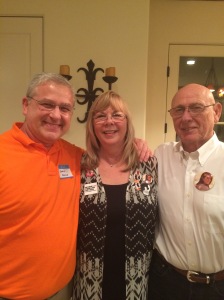My kids grew up in the golden age of reading. They started reading chapter books just when the Harry Potter books took over the world. I grew up in the golden age of baseball. And by that, I mean the 1970’s. I grew up in Rhode Island that weigh station stop between Boston and New York. Many older baseball fans, stung by the Boston Braves leaving town, counted themselves as New York Yankee fans. Most of the kids I grew up with were Boston Red Sox fans. I was a Cincinnati Reds fan. Why? It’s a convoluted story of my father liking them as a kid because he followed Corky Valentine, a short-time pitcher for the Reds in the mid-1950s. Anyway, I grew up during the Big Red Machine of the mid-1970s.
I had most of the team in baseball cards. I meticulously considered my All-Star Game ballot long before dangling chads migrated to politics. And Pete Rose was my hero. He was me. He was not gifted athletically or physically. He was not a pitcher. He was aggressive “between the white lines.” And he was on one of the most dominant teams in baseball history. Tony Perez at first base, Joe Morgan at second base. Dave Concepcion at shortstop, Rose at third base, George Foster in left field, Cesar Cedeno in center field, Ken Griffey in right field, and Johnny Bench behind the plate. Believe me when I tell you, I wrote that from memory, as fresh today as it was when I was ten.
As the Fates planned, “my” Reds met my friends’ Red Sox in the 1975 World Series. Before each game, I would lay my baseball cards in their defensive positions on the rug. And while Game 6 almost caused me to drop out of school or seriously consider either homeschooling or the Peace Corps (rather than face my friends), the Reds won Game 7 and the World Series. Rose batted .370 and was named the World Series Most Valuable Player.
The thing about Rose as a player was that he was granted limited physical ability but an insatiable need to win, essentially at any cost. He was Charlie Hustle. Was he a showboat? Maybe, but he backed it up. I wanted to be a better player than I was. But I did love the game. My brother was a much better player than me, and I base that on the fact that he was a pitcher and played in college. I could barely break a window with my “fastball.” My brother once aimed at a kid’s head in Little League because he taunted him. Wrong? Maybe, but the kid didn’t do it again. Being competitive was equated with toughness. We were constantly reminded that we were not tough because we were not city-born. It was (and still is) a driving force to be overcome.
My father coached me and then my brother for many years. I can’t tell you the number of former players on those teams impressed by my father’s post-victory speech. He may have been disappointed in me (usually) or the team’s performance, but he always summarized his talk with, “The most important thing was we won, and they didn’t.” It never failed to bring goosebumps to the team. He was competitive, and so were we. Unfortunately, as my skills waned and were eclipsed by others, his pushing and my anger caused too many rifts. They ended in me withdrawing from baseball and fracturing our relationship for too long. I missed my brother’s college career because of it, and it is a regret I will live with always.

Pete Rose also made mistakes, permanently fracturing his relationship with Major League Baseball. Whether he, in the wake of the steroid era and Draft Kings advertising on MLB.com, deserves to be in the Hall of Fame cannot be settled here in 1,000 words (he does belong). He’s still a baseball fanatic and can tell you he batted .261 against Nolan Ryan for his career, but that one summer day in 1978, he went 4-4 with two doubles on an unseasonably cool July day in Cincinnati. He could tell you it was 71 degrees at game time. Ryan wasn’t supposed to pitch but came back on three days’ rest because… and he could do that with every pitcher and every game over every year of his long career.
Last weekend, my brother had the opportunity to meet Pete Rose at a baseball card show in Boston. In many ways, it culminated a baseball pilgrimage for the Fucile’s.

My dad is gone, and Rose is frail at 82, but he was my baseball hero, the tough hometown boy from Cincinnati. The Reds always were my dad’s favorite team and still are for my brother and me. My hero could fly.






 Growing up, Pete Rose was my idol. He played baseball like I thought the game should be played. All hustle, all the time. As I grew older, my idols came and went (so did my baseball skills!), and I learned that there is a difference between heroes and idols. I found that idolatry dehumanized the person and ascribed to them mythical attributes. A hero by definition (and by contrast) has done something heroic, but allows for human mistakes and misgivings, in a word imperfections or the right to be just a regular person who has done something extraordinary.
Growing up, Pete Rose was my idol. He played baseball like I thought the game should be played. All hustle, all the time. As I grew older, my idols came and went (so did my baseball skills!), and I learned that there is a difference between heroes and idols. I found that idolatry dehumanized the person and ascribed to them mythical attributes. A hero by definition (and by contrast) has done something heroic, but allows for human mistakes and misgivings, in a word imperfections or the right to be just a regular person who has done something extraordinary.